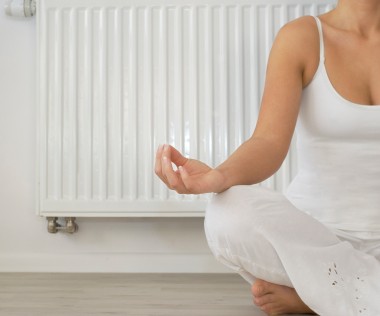Let’s be honest here. Unless you’re an HVAC contractor, you’re probably not particularly interested in your heating system. And that may lead you to skimp on routine maintenance.
But…if you really want to think about your heating system as little as possible, then routine maintenance is exactly what you need.
Limited time offer: Gas Furnace or Heat Pump Tune-Up – only $99!!
According to a study conducted by the Louisiana Cooperative Extension Service, 9 out of 10 HVAC system failures are caused by dirt and dust. That means that if you hire a professional to clean and service your furnace, and you change your furnace’s air filter once a month, you are 90% less likely to have a breakdown this year!
This, of course, is terrific news for your budget. Not only will you save by minimizing the possibility of a major repair, you’ll also increase your heater’s efficiency, which means lower energy bills this winter.
And that means more money for that new car, the kids’ college tuition, or (just maybe) your dream vacation.
But even better than that, routine maintenance leads to peace of mind. You’ll have less hassle, less worry, and a lot more time relaxing cozily in your house, doing whatever you want to do, while your heater minds its own business in your basement.
So, now that you’re persuaded…what routine maintenance do you need?
You should get an annual tune-up/inspection every year. A good furnace tune-up will include:
- Checking the thermostat to ensure that the settings are comfortable and energy-efficient
- Checking all electrical connections, motors, and controls
- Testing the pilot light and the ignition
- Lubricating the blower bearings and blower motor as recommended by the manufacturer
- Cleaning dust from the blower compartment
- Inspecting gas or oil connections, gas pressure, and burner combustion
- Inspecting the heat exchanger to make sure it’s not leaking carbon monoxide
- Checking the pilot light if the furnace has one
- Testing air flow
- Checking vents, drafts, and flues
- Checking for gas leaks
- Checking the safety components, such as limit controls and pilot safety; and
- Inspecting the condensate drain (if the system includes central air)
Then, there are a few simple things you should do yourself.
- Make sure nothing flammable has been stored next to the furnace over the summer (weed whackers, lawn movers, gas cans, etc).
- Give the outside of your furnace a good dusting (also, dust the areas near it).
- Test your heater for a few minutes while it’s still warm out (like in early September), to make sure that it’s working well on the first cold day. Also, you can comfortably open the windows to disperse that unpleasant “first time” smell.
- Make sure that your thermostat is set in the heating mode when heating season starts. Just setting the dial above room temperature won’t activate the heat if the system is still in AC mode.
- Change/clean your air filter regularly, especially during heavy use seasons (winter and summer). You should replace disposable fiberglass filters, and wash electrostatic or electronic filters, at least every three months, and more often if they look dirty. A dirty filter will slow down air flow and make the system work harder to keep you warm or cool (a waste of energy). A clean filter will keep dirt and dust out of your system, increasing its longevity and reducing the need for expensive repairs.
- Install a carbon monoxide (CO) detector near your bedroom, and test it monthly. (Tip: do this whenever you change your air filter. And replace the batteries each year when you test your heater.) Please note that a CO detector should be a second line of defense, not a substitute for an annual furnace inspection.
Everything on the list above should take you about half an hour a year, in total. That’s a pretty minimal amount of time in exchange for months and months of worry-free operation!
PS. Everyone is suddenly interested in their heating system if it’s the first cold night and their furnace doesn’t work. This is not the time to schedule a tune-up. Do it now and beat the rush!
Call Carney at 215-346-7160 or contact us online to schedule an appointment.


